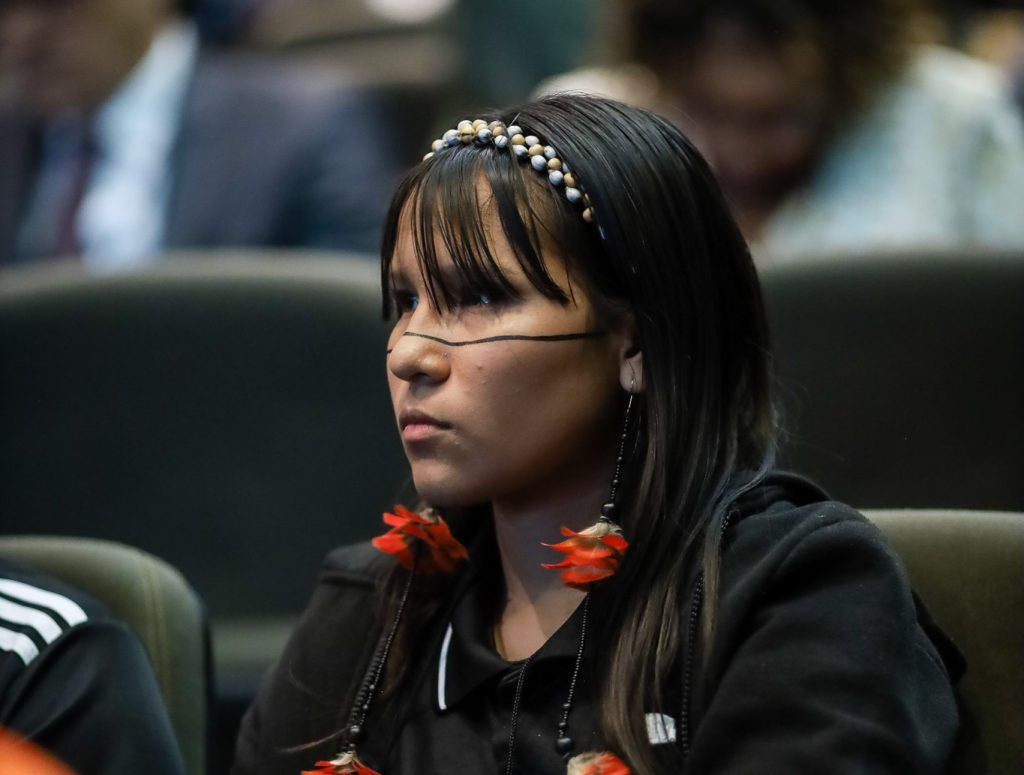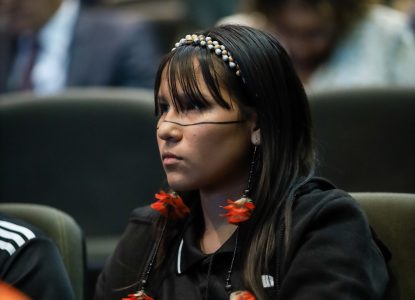By Taissa Silva da Costa
In August, 2024, at the G20 Interfaith Forum in Brasilia, Taissa Silva da Costa, a young indigenous activist from the Magua Cambeba people, delivered a powerful appeal on behalf of young indigenous leaders. Her speech addressed critical global issues such as food security, environmental protection, and social justice, emphasizing the importance of including indigenous voices in shaping the world’s future.
– – –
My name is Taissa, and I’m an indigenous woman from the Magua Cambeba people. I live in the village of Tura do Carioca, CA, in the Amazon. I am indeed part of the world vision, as a young learner. I’m an activist, a communicator. I’m going to read a short text.

In a world full of challenges, where hunger is miserable and ever more present, it’s urgent that we seek solutions that resonate with hope and solidarity. The food crisis that afflicts millions can be addressed through sustainable agriculture, where planted seeds represent the promise of a more abundant and fair tomorrow. We need to join forces to reduce food waste, transforming what could be discarded into life and dignity for those in need.
The environment calls for our attention. Protecting our forests and oceans is an act of love for future generations. Investment of financial resources directly with villages in renewable energy, clean water, internet, environmental education, and others is not just a necessity, it is a commitment to our planet. Every sustainable choice we make is towards a greener future.
Building peace requires dialogue and empathy. We need to listen to the silenced voices, promote inclusion and care in different cultures and communities. When we come together, we transform conflicts into opportunities for growth.
Debt relief is a vital step to allow developing countries to flourish. Restructuring debt is not just an economic issue, it is a social justice issue. Saved resources can be directed to health, education, and infrastructure. Confronting human trafficking and modern slavery is a fight that should touch us deeply.
We need to educate our communities, strengthen laws, and ensure that everyone has access to freedom and dignity. Ending climate change requires immediate action. Every small gesture counts: planting a tree, saving energy, or supporting environmental policies. Together we can reverse the course of history.
It is worth noting that we can make progress, yes, with everyone’s participation, But we are unlikely to get very far if we don’t have direct participation from indigenous, riverside, and exploited communities. And what about those who really need it most?
That’s why I appeal to everyone present. Include young people in your organizations, in the journey of policies for a future for the world. With courage and determination, we can transform challenges and opportunities to create a world where everyone lives with dignity, security and hope. The future is in our hands.
Chito Manito, thank you very much.
– – –
Taissa Silva da Costa, also known as Taissa Cambeba, is a young indigenous activist from the Magua Cambeba people in the Amazon. She is part of World Vision as a young learner and works as an activist and communicator, advocating for indigenous rights and sustainable development.


